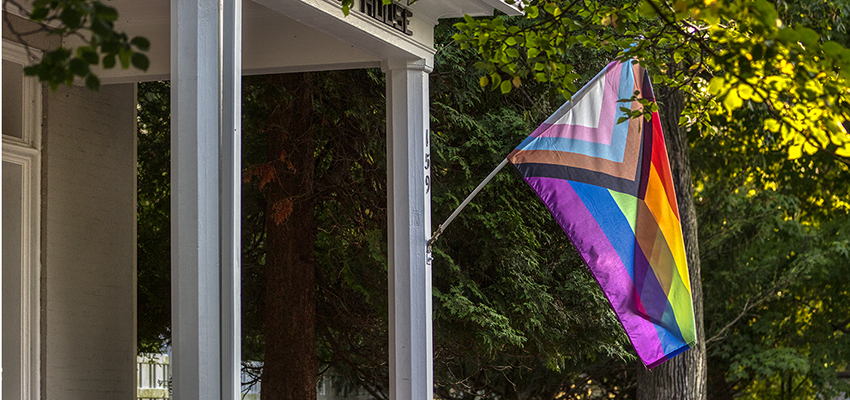
HWS News
8 September 2020 HWS Announces Critical Sexuality and Queer Studies Program
Hobart and William Smith Colleges and the New York State Department of Education have approved the renaming of the LGBT Studies Program as the Critical Sexuality and Queer Studies Program, reflecting the contemporary state of the field and the current curriculum.
In 2002, the Colleges were among the first higher education institutions in the U.S. to establish an academic major in LGBT Studies. Associate Professor of American Studies Beth Belanger, who chairs the Critical Sexuality and Queer Studies Program, says the name change “indicates more clearly the content and approach of this interdisciplinary field of inquiry and what we are already doing in our program, and once again positions HWS as a leader in the field of study.”
Over the past 25 years, queer theory has transformed LGBT Studies from an “identity”-based field into one centered on the critical study of sexuality and gender as crucial frameworks for understanding formations of power in historical and geographic context. Rather than analyzing sexuality as individual psychology or orientation, queer theory explores sexuality more broadly: as relations of power, as a challenge to regimes of “the normal,” as modern technologies of the self and as a vibrant resource for crafting new socialities.
The Critical Sexuality and Queer Studies curriculum development and name change was led by Assistant Professor of Critical Sexuality and Queer Studies Melissa Autumn White, in collaboration with HWS colleagues Michelle Martin-Baron, Christopher Lemelin, and Beth Belanger. White authored and co-authored a series of New York Six and Central New York Humanities Corridor Grants to bring together professors from across the state including faculty from Syracuse University, Union College, Colgate University, Skidmore College, LeMoyne College and Hamilton College to discuss the changing field. The program changes proceed from these collaborations, to offer an interdisciplinary field of social inquiry centered on queer methods and epistemologies, illuminating the connections between identity, difference, and histories and geographies of power.
“While queer theory has challenged the identitarian premise signaled by ‘LGBT’ Studies, it also has vitalized the field’s focus on the production of minoritarian difference, and we wish to signal the importance of queer theory and methods for the critical study of sexuality in relation to social, political, economic, and cultural institutions and relations of power,” White explains.
The program and course offerings reflect the epistemological and methodological approach of the field, centering on “the critical analysis of the formation of sexual and gender identities,” according to the current program description. Critical Sexuality and Queer Studies Program is “not only for, by, or about LGBT and queer people, but more fundamentally provides a critical analysis of sex and gender as they function in relation to human history and its cultural diversity.”
